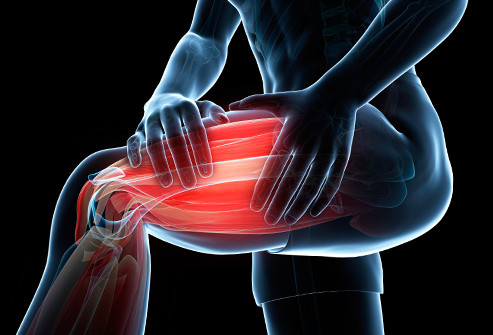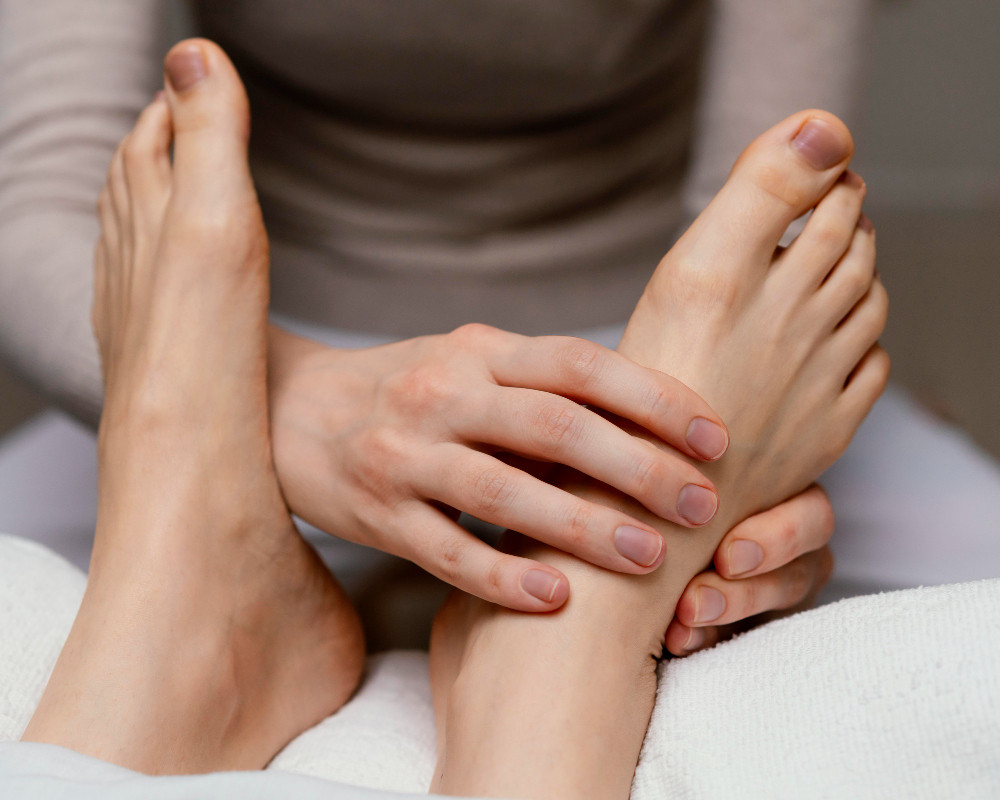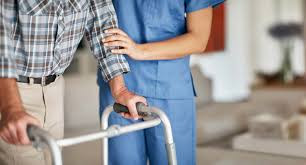Definisi
Tics facialis atau mimic spasm adalah salah satu bentuk tic, berupa gerakan tak terkendali dan berulang pada wajah yang sering melibatkan mata dan otot-otot wajah, seperti gerakan mata berkedip dengan cepat atau hidung mengernyit. Tic sendiri merupakan gerakan otot yang tidak teratur, tidak terkendali, tidak diinginkan, dan berulang yang dapat terjadi di bagian tubuh mana pun.
Tics facialis juga dapat terjadi pada bagian mana saja di wajah, tetapi biasanya terjadi setiap kali di tempat yang sama dan cukup sering, sehingga dapat mengganggu dan memengaruhi kualitas hidup penderitanya. Meskipun tics facialis biasanya tidak dapat dikontrol, terkadang gerakannya dapat ditahan untuk sementara waktu, walaupun hal ini sering membuat penderitanya semakin tidak nyaman.
Tics facialis paling sering terjadi pada masa kanak-kanak, ditemukan terutama pada anak laki-laki daripada anak perempuan. Namun pada beberapa kasus, kondisi ini juga dapat terjadi pada orang dewasa. Tics facialis biasanya tidak menandakan adanya suatu kondisi medis yang serius, dan sebagian besar kasus akan sembuh dalam beberapa bulan.
Penyebab
Belum diketahui secara pasti penyebab dari tics facialis. Timbulnya tics sering dianggap sebagai adanya perubahan di bagian otak yang berfungsi mengontrol gerakan. Kebanyakan kasus tics facialis merupakan suatu gejala dari beberapa gangguan yang berbeda, seperti pada:
Transient tics disorder mungkin menjadi penyebab timbulnya tics facialis jika gejala berlangsung dalam waktu singkat. Tic mungkin terjadi hampir setiap hari selama lebih dari sebulan tetapi kurang dari setahun, dan umumnya sembuh tanpa pengobatan khusus. Gangguan ini paling sering terjadi pada anak-anak dan diyakini sebagai bentuk ringan dari sindrom Tourette.
Penderita transient tics disorder cenderung mengalami dorongan yang luar biasa untuk membuat suatu gerakan atau suara tertentu, yang mungkin termasuk:
-
- Mata berkedip
- Menggerak-gerakkan lubang hidung
- Mengangkat alis
- Membuka mulut
- Menggerak-gerakkan lidah
- Berdeham
- Mendengkur
Gangguan Tic Motorik Kronis
Gangguan tic motorik kronis lebih jarang terjadi dibandingkan transient tics disorder, tetapi lebih sering ditemukan daripada sindrom Tourette. Penderita biasanya mengalami tic selama lebih dari satu tahun, dan ada satu periode dimana mereka mengalami gangguan selama lebih dari 3 bulan. Berkedip berlebihan, meringis, dan berkedut adalah tic yang sering terjadi pada gangguan tic motorik kronis.
Tidak seperti transient tics disorder, kondisi ini dapat terjadi selama tidur. Anak-anak yang didiagnosis dengan gangguan tic motorik kronis pada usia 6 hingga 8 tahun, biasanya tidak memerlukan pengobatan. Pada periode usia tersebut, gejalanya dapat berkurang dan bahkan bisa mereda dengan sendirinya.
Sindrom Tourette, juga dikenal sebagai gangguan Tourette, biasanya dimulai pada masa kanak-kanak, dan rata-rata muncul pada usia 7 tahun. Anak-anak dengan gangguan ini mungkin mengalami tic di wajah, kepala, dan lengan. Tic dapat bertambah berat dan menyebar ke area lain dari tubuh ketika gangguan terus berkembang. Namun, tic biasanya akan berkurang pada usia dewasa.
Orang yang didiagnosis dengan sindrom Tourette biasanya turut mengalami tic vokal selain tic fisik. Tic vokal termasuk cegukan yang berlebihan, berdeham, dan berteriak. Beberapa orang mungkin juga sering mengucapkan umpatan atau mengulang kata dan frasa.
Faktor Risiko
Beberapa faktor dapat berkontribusi terhadap timbulnya tics facialis. Faktor-faktor ini cenderung meningkatkan frekuensi dan keparahan tics, yaitu:
- Stres
- Kegembiraan
- Kelelahan
- Panas
- Obat perangsang (stimulan)
- Attention Deficit Hyperactive Disorder (ADHD)
- Obsesive-Compulsive Disorder (OCD)
Gejala
Gejala tics facialis mungkin melibatkan gerakan otot seperti kejang yang berulang dan tidak terkontrol. Contoh gerakan yang dapat muncul di antaranya:
- Mata berkedip
- Meringis
- Mulut berkedut
- Mengernyitkan hidung
- Menyipitkan mata
- Berdeham berulang
- Menggerakan lidah
- Menghisap gigi
- Mengangkat alis
- Membuka dan menutup mulut
Diagnosis
Dalam mendiagnosis tics facialis, dokter akan melakukan wawancara untuk mendiskusikan gejala yang Anda alami serta faktor risiko pada diri Anda yang mungkin berpengaruh. Dokter juga mungkin merujuk Anda ke dokter spesialis jiwa untuk dapat menilai status psikologis Anda. Selain itu, dokter akan berusaha untuk menyingkirkan penyebab fisik dari tics facialis. Dokter mungkin bertanya tentang gejala lain untuk memutuskan apakah Anda memerlukan pemeriksaan tambahan lebih lanjut.
Beberapa pemeriksaan penunjang yang mungkin dilakukan adalah elektroensefalogram (EEG) untuk mengukur aktivitas listrik di otak Anda. Pemeriksaan ini dapat membantu untuk menentukan apakah terdapat suatu gangguan kejang yang menyebabkan timbulnya gejala tic. Dokter mungkin juga menyarankan pemeriksaan elektromiografi (EMG), yaitu tes yang dapat mengevaluasi masalah otot atau saraf. Pemeriksaan ini bertujuan untuk memeriksa kondisi yang menyebabkan otot Anda berkedut.
Tata Laksana
Tata laksana tics facialis dapat bervariasi tergantung dari jenis dan tingkat keparahan tic. Umumnya pada kasus tic, seperti yang disebabkan oleh transient tics disorder, dapat hilang sendiri tanpa pengobatan seiring waktu. Tic yang menimbulkan gangguan kinerja di sekolah atau di tempat kerja mungkin memerlukan perawatan khusus. Tic kronis yang berlangsung lama, seperti yang disebabkan oleh sindrom Tourette, mungkin memerlukan perawatan yang lebih ekstensif.
Tatalaksana tics facialis dapat meliputi:
Psikoterapi
Dokter dapat merekomendasikan Anda untuk konsultasi dengan psikoterapis yang dapat membantu Anda menemukan cara untuk mengubah atau menghilangkan tics. Modifikasi perilaku dan teknik untuk membalikkan kebiasaan (habit) dapat membantu Anda mengatasi gejala tic dan meningkatkan kualitas hidup. Teknik ini akan mengajari Anda untuk mengidentifikasi kapan tic akan terjadi.
Setelah Anda dapat mengidentifikasinya, terapis kemudian akan mendorong Anda untuk mencoba mengganti tic dengan perilaku atau aktivitas yang berbeda. Seiring waktu, teknik ini dapat membantu menggantikan kebiasaan fisik dengan kebiasaan yang kurang mengganggu atau yang tidak memengaruhi fungsi sehari-hari Anda.
Obat-obatan
Anda dapat menerima obat untuk meredakan gejala tic. Biasanya, obat-obatan tersebut diresepkan oleh dokter spesialis jiwa dan bukan menjadi terapi pertama yang diberikan. Dalam kasus kedutan atau tics yang menetap, dokter dapat merekomendasikan suntikan Botox. Suntikan botox dapat melumpuhkan otot-otot wajah selama beberapa bulan, sehingga cukup untuk menghentikan gejala tics kembali. Obat-obatan tertentu juga dapat membantu mengobati kondisi dasar yang menyebabkan timbulnya tics, seperti sindrom Tourette atau ADHD.
Prosedur Bedah
Beberapa metode bedah dapat membantu dalam kasus tics facialis yang parah, seperti yang disebabkan oleh sindrom Tourette. Salah satu terapi bedah yang dapat diterapkan adalah deep brain stimulaion. Beberapa penelitian menunjukkan bahwa dengan menanamkan suatu elektroda di otak yang mengalirkan arus listrik ke bagian tertentu pada otak, dapat membantu mengatur gelombang otak dan mengurangi timbulnya tic. Namun hal ini masih memerlukan penelitian lebih lanjut.
Kelola Stres
Dokter juga dapat merekomendasikan beberapa perawatan alami untuk tics facialis. Faktor stres diyakini berperan dalam perkembangan dan timbulnya tic, sehingga perawatan alami akan melibatkan pengurangan stres dalam kehidupan Anda, seperti:
- Olahraga ringan
- Permainan imajinatif
- Yoga
- Meditasi
- Istirahat yang cukup
Komplikasi
Kebanyakan kasus tics facialis tidak menimbulkan komplikasi dan dapat hilang dengan sendirinya. Namun, pada beberapa kasus, gejala tic terkadang dapat mengganggu aktivitas di sekolah atau tempat kerja, dan juga memengaruhi kualitas hidup penderitanya.
Pencegahan
Belum diketahui cara pasti untuk mencegah timbulnya tics facialis. Mengurangi stres mungkin bisa membantu karena timbulnya gejala tics seringkali dipengaruhi oleh tingkat stres yang tinggi. Terkadang, konseling juga dapat membantu Anda atau anak Anda belajar bagaimana mengatasi stres.
Kapan Harus ke Dokter?
Seringkali, tics facialis bersifat sementara dan akan hilang dengan sendirinya. Konsultasikan diri Anda ke dokter jika mengalami gejala tics yang parah, menetap, atau gejala berada di banyak kelompok otot yang berbeda.
- dr Hanifa Rahma
Johnson, Jon. Everything You Need to Know About Facial Tics. (2018). Retrieved 19 Februari 2022, from https://www.medicalnewstoday.com/articles/322174
Martel, Janelle. Facial Tic Disorder. (2019). Retrieved 19 Februari 2022, from https://www.healthline.com/health/facial-tics
Shelat, Amit M. Facial Tics. (2020). Retrieved 19 Februari 2022, from https://medlineplus.gov/ency/article/001410.htm
Ratini, Melinda. Tic Disorders and Twitches. (2020). Retrieved 19 Februari 2022, from https://www.webmd.com/brain/tic-disorders-and_twitches
Tics. (2019). Retrieved 19 Februari 2022, from https://www.nhs.uk/conditions/tics/











